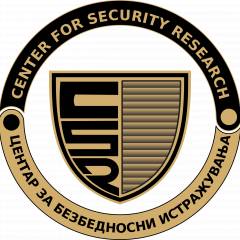
International concern is growing over the rapidly escalating turmoil in the South Caucasus, as fighting between Armenia and Azerbaijan continues and is threatening to draw regional powers directly into the conflict, destabilising an area that serves as an important energy corridor for global markets.
The clashes that erupted on the Armenia-Azerbaijan border are threatening to push the countries back to another prolonged war 26 years after the last ceasefire was reached. The last Nagorno-Karabakh War took place from February 1988 to May 1994, in the Nagorno-Karabakh enclave in southwestern Azerbaijan, between the majority ethnic Armenians of Nagorno-Karabakh backed by Armenia, and the Republic of Azerbaijan.
In 1988, tensions rose in the mountainous enclave, which was then still part of the Soviet Union. Armenians, who are the predominant ethnic group in the area, rose up to demand unification with Armenia. Yerevan, the capital of Armenia, took control of the region during a six-year war that claimed around 30,000 lives and displaced hundreds of thousands of people. The violence ended with a 1994 ceasefire that froze the conflict along a boundary, known as the line of contact, between the two sides. However, they never signed a peace agreement. Azerbaijan has long threatened to retake the region, which it considers to be illegally run by ethnic Armenians.
The conflict between these two former Soviet republics has wider geopolitical implications as Turkey, which shares a border with Armenia, is backing Azerbaijan, while Russia has called for a ceasefire. Another regional power, Iran—which has relations with both Yerevan and Baku, Azerbaijan’s capital—has called for a ceasefire and the start of negotiations.
Russia is by far the dominant military force in the Caucasus, and Moscow, which has close ties with both Armenia and Azerbaijan, and regards the former Soviet republics as its backyard, has offered to mediate. Kremlin spokesman Dmitry Peskov told reporters that Russia will take a balanced position and will use its influence to calm the crisis. He also said that Russia would take a very dim view of involvement from other nations in the crisis, including Turkey which has pledged to back Azerbaijan, and called on all regional powers to exercise restraint.
On the other hand, Turkey, which closed its border with Armenia in the early 1990s in solidarity with Azerbaijan, has vowed to stand by Baku. Turkey regards the Azeri people as close kin, part of a Turkic brotherhood stretching from the Balkans to Central Asia. Following the July skirmishes between Baku and Yerevan, Turkey organised two weeks of land and aerial military drills in Azerbaijan. Turkey, which boasts the North Atlantic Treaty Organization’s second largest army after the US, has shown that it can rapidly deploy military forces to the region, following its recent interventions in Syria and Libya.
In strategic and geopolitical terms, it is important to keep in mind the fact that the wider South Caucasus is a crucial artery for gas and oil from Azerbaijan into Turkey and on to Europe and other world markets.
Following the fall of the Soviet Union, Azerbaijan sought to export its oil and gas without relying on the Russian pipeline network. It attracted Western investors, laying a series of oil and gas pipelines allowing it to transport its energy from the Caspian Sea to international markets. Azerbaijan supplies about 5 per cent of Europe’s gas and oil demands (helping to reduce the EU’s dependence on Russia), and fighting in 2016 came close to a number of these pipelines.
One gas pipeline, completed last November, runs extremely close to the conflict front line and stretches across Turkey, and was a further demonstration of intentions to help ease Europe’s reliance on Russian gas imports. Protection of this vital corridor is important for European energy security and for ensuring the independence of the states in the region, which is why this energy and transit corridor has substantial geopolitical significance.
Europe must pay close attention to the developing conflict because of the potential loss of life and humanitarian crisis. Moreover, allowing Russia to gain greater regional influence will further limit European efforts to reduce its over-reliance on energy from Russia.
This article was originally published for Conservatives Global



